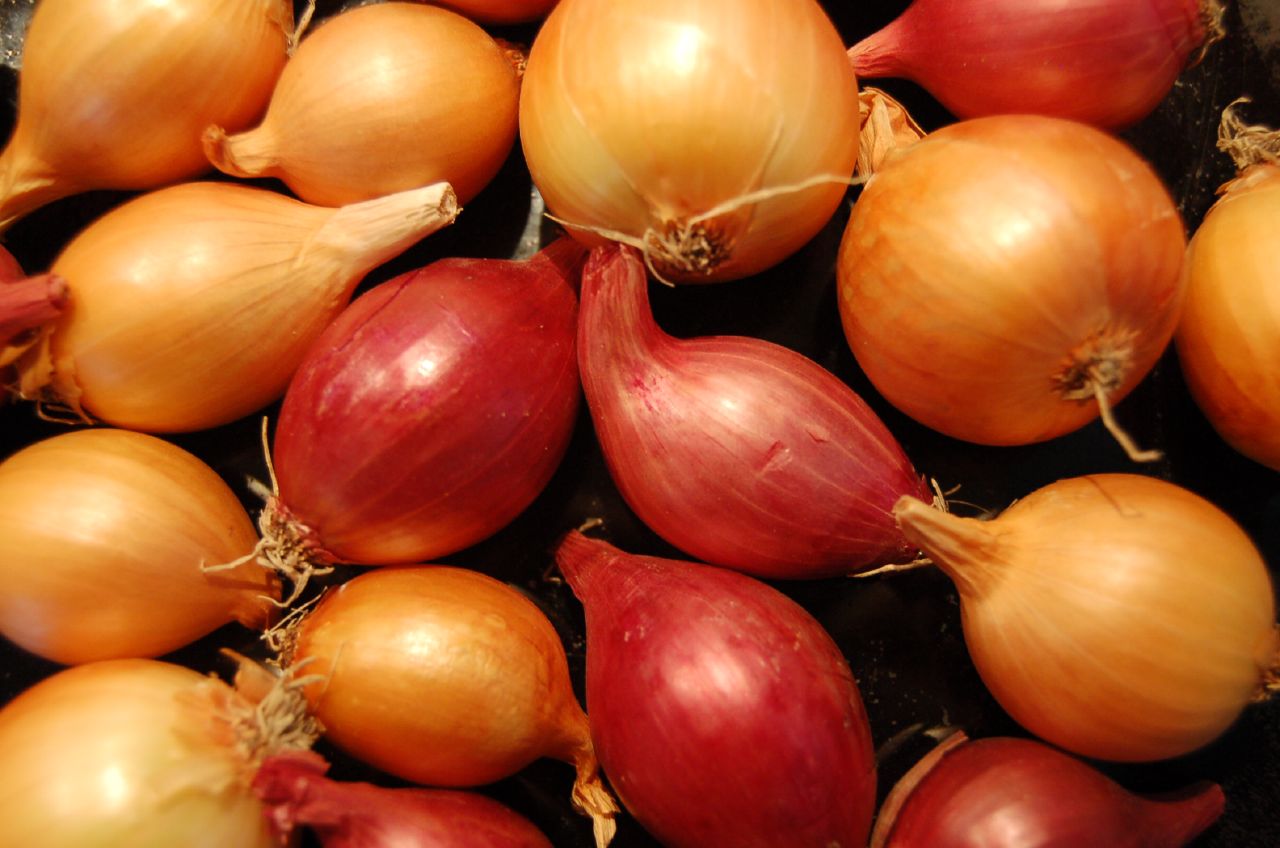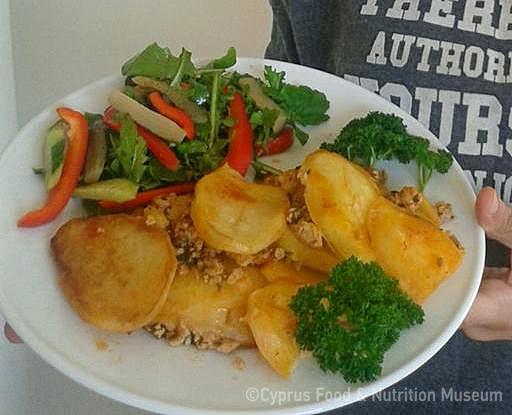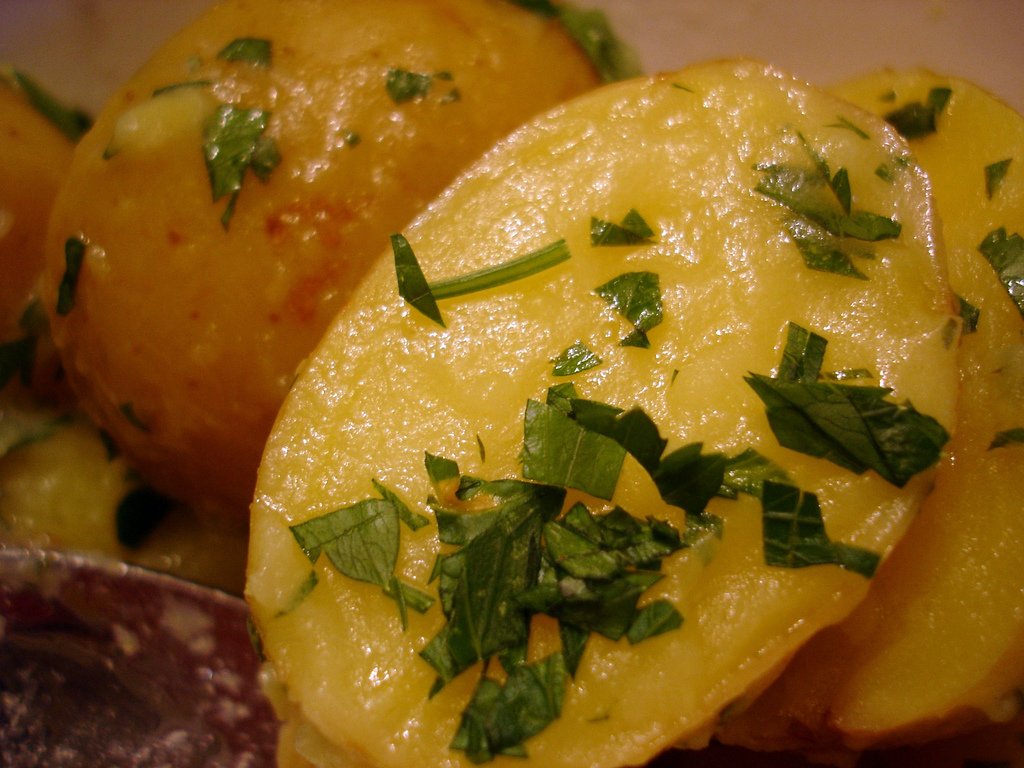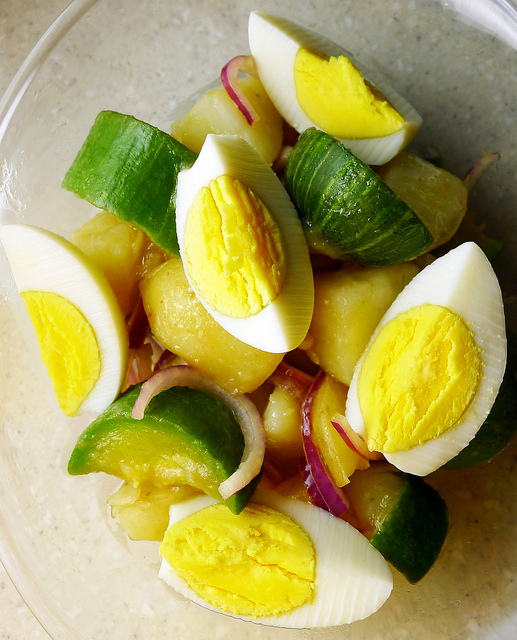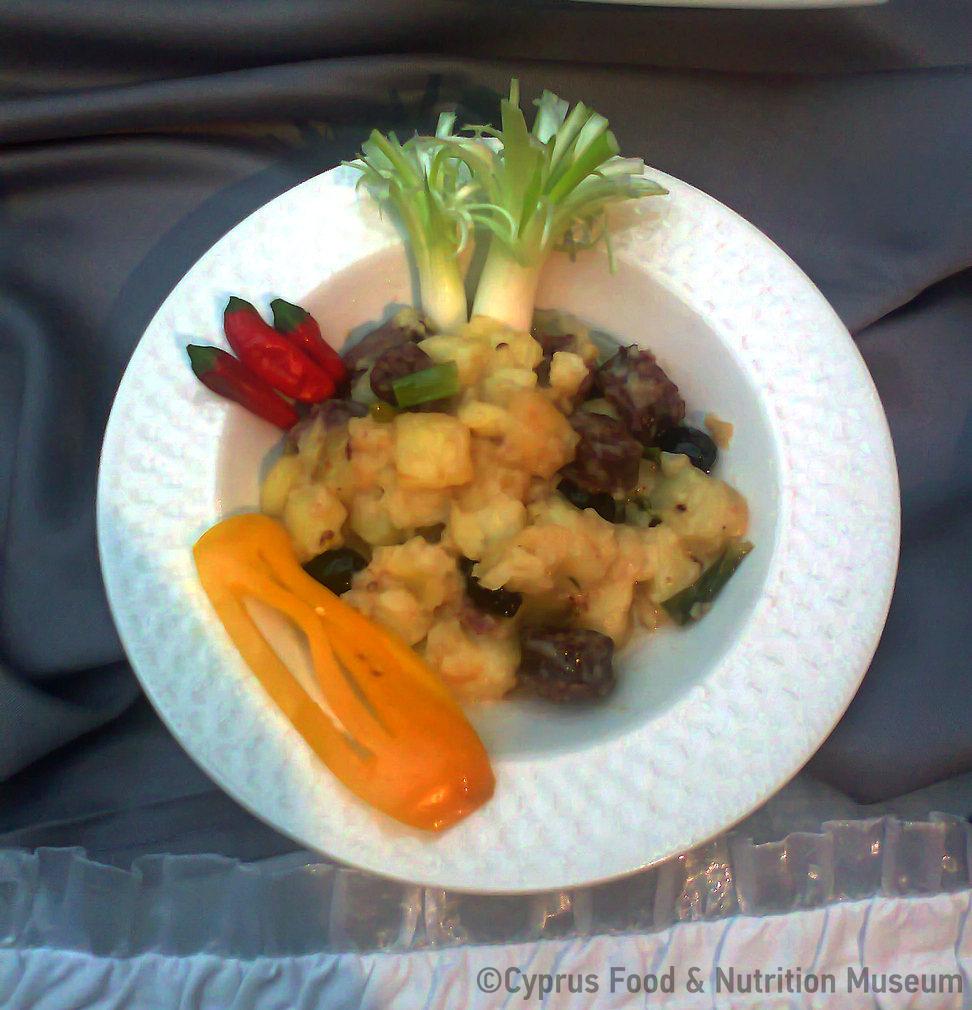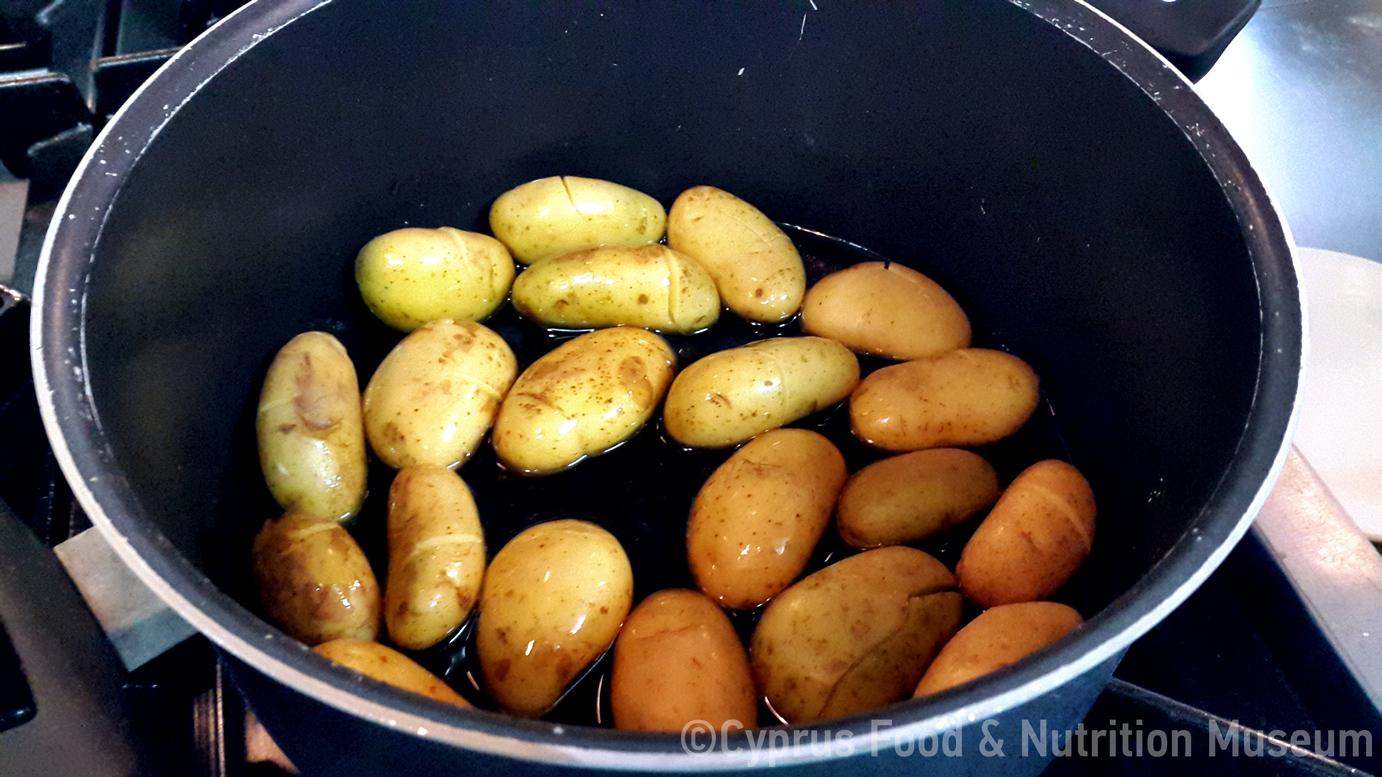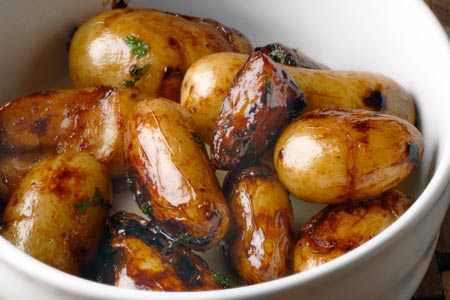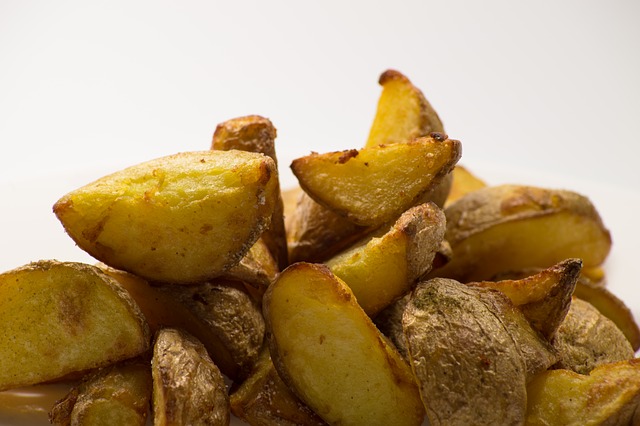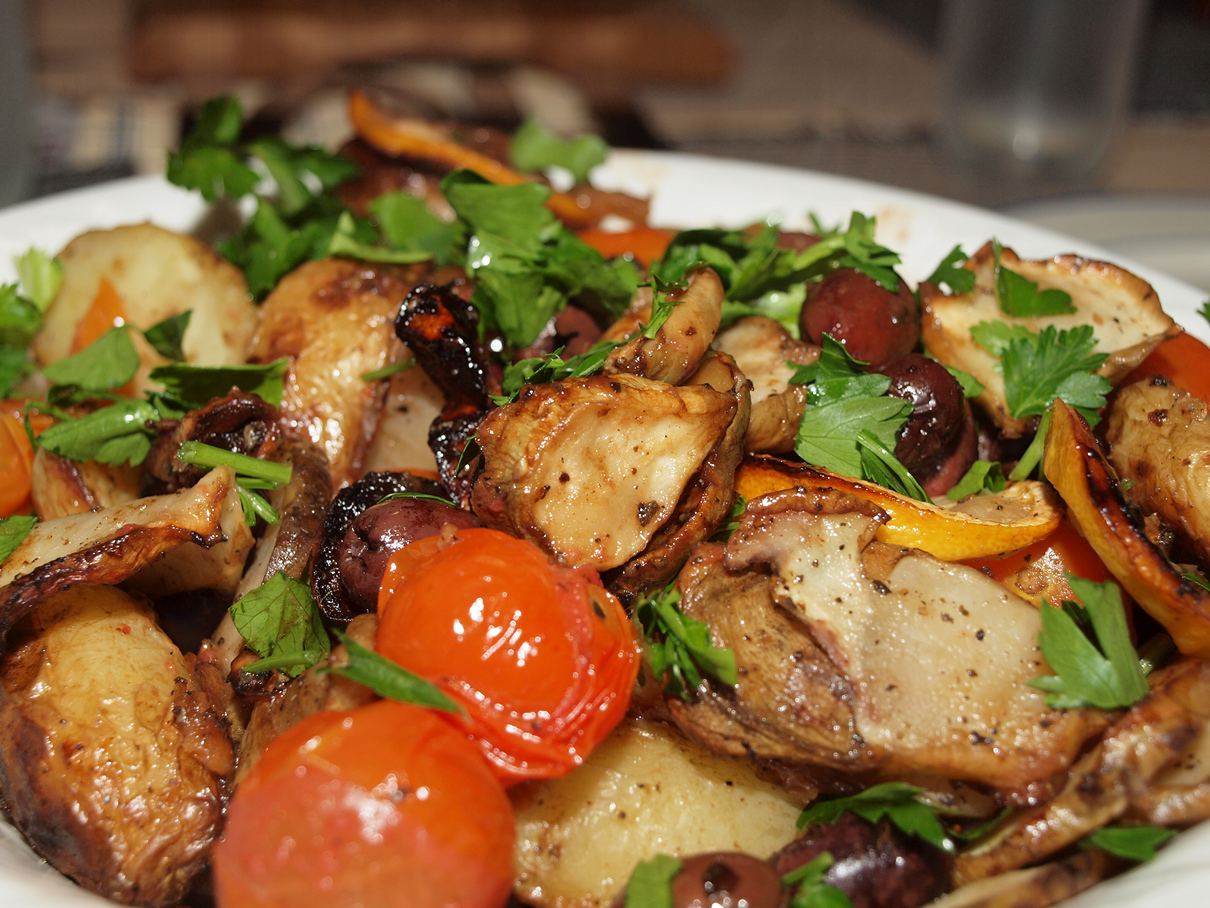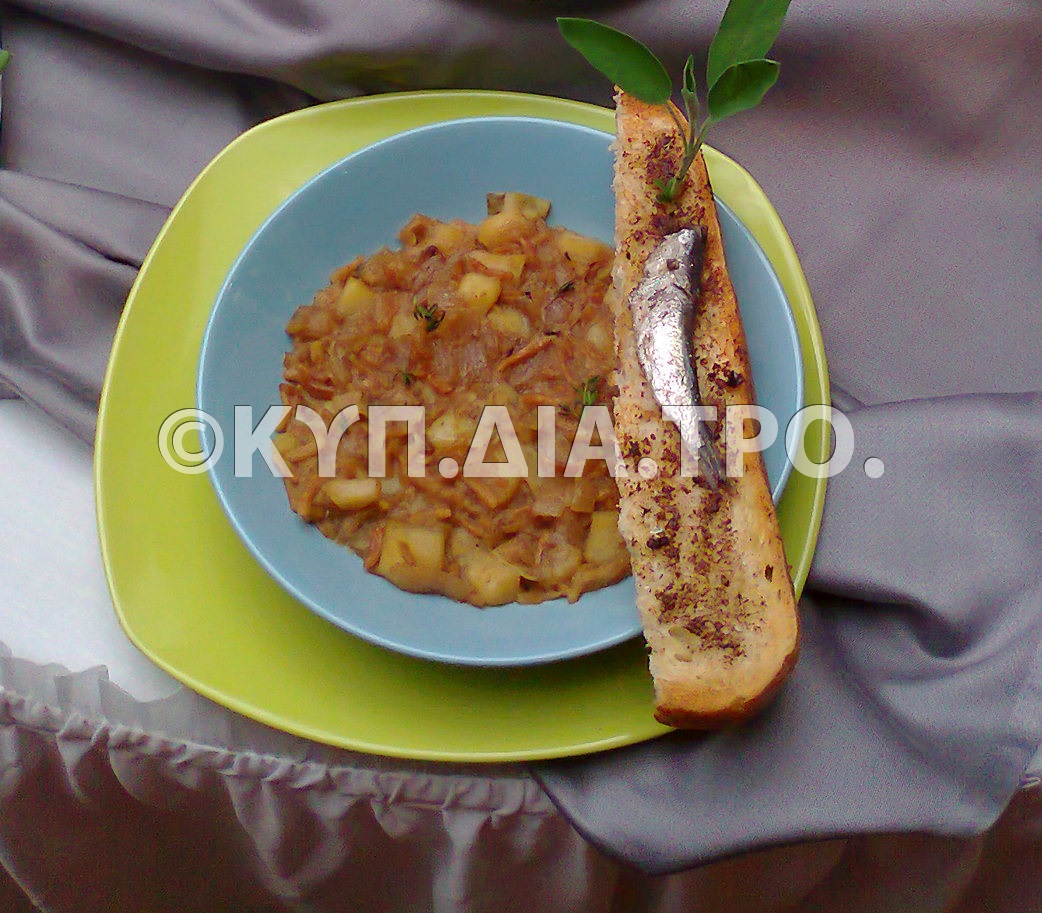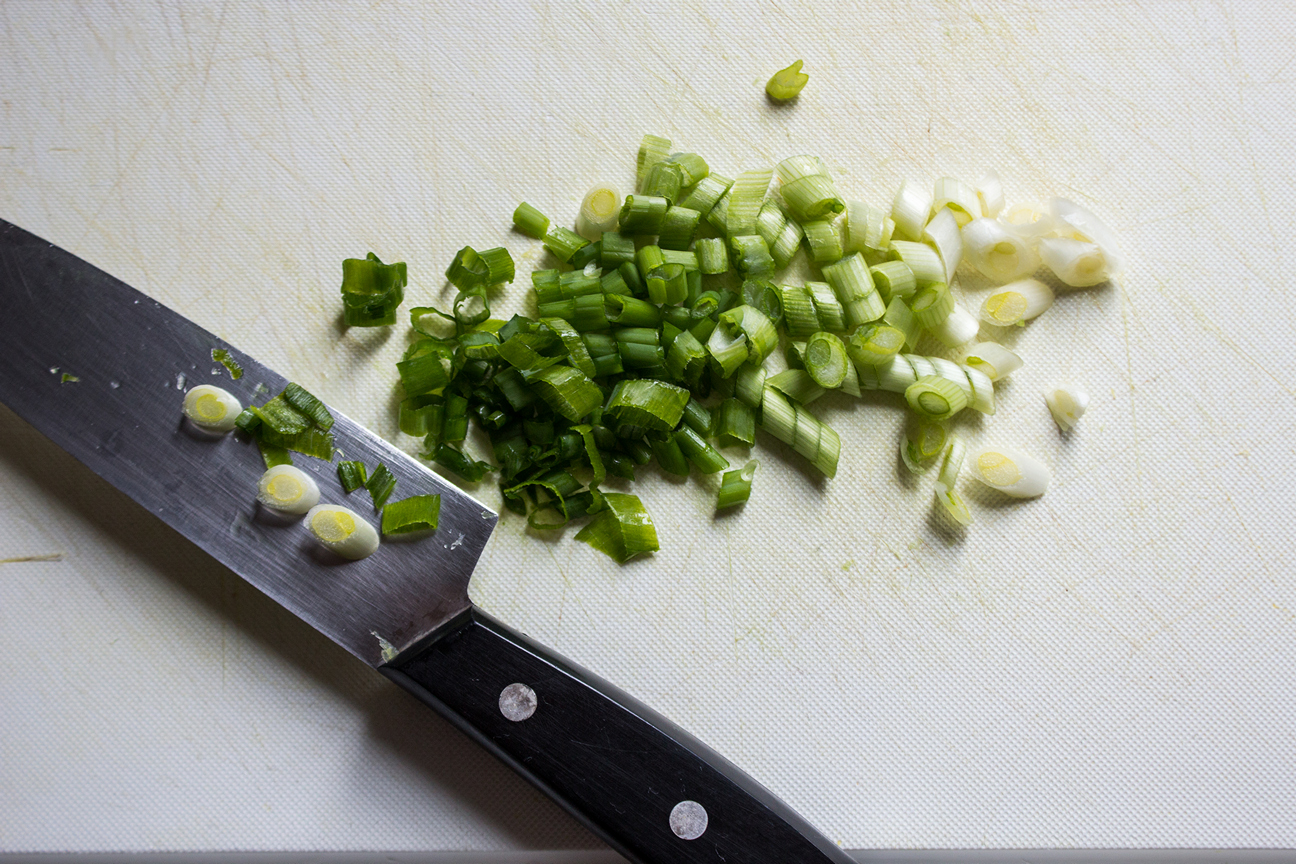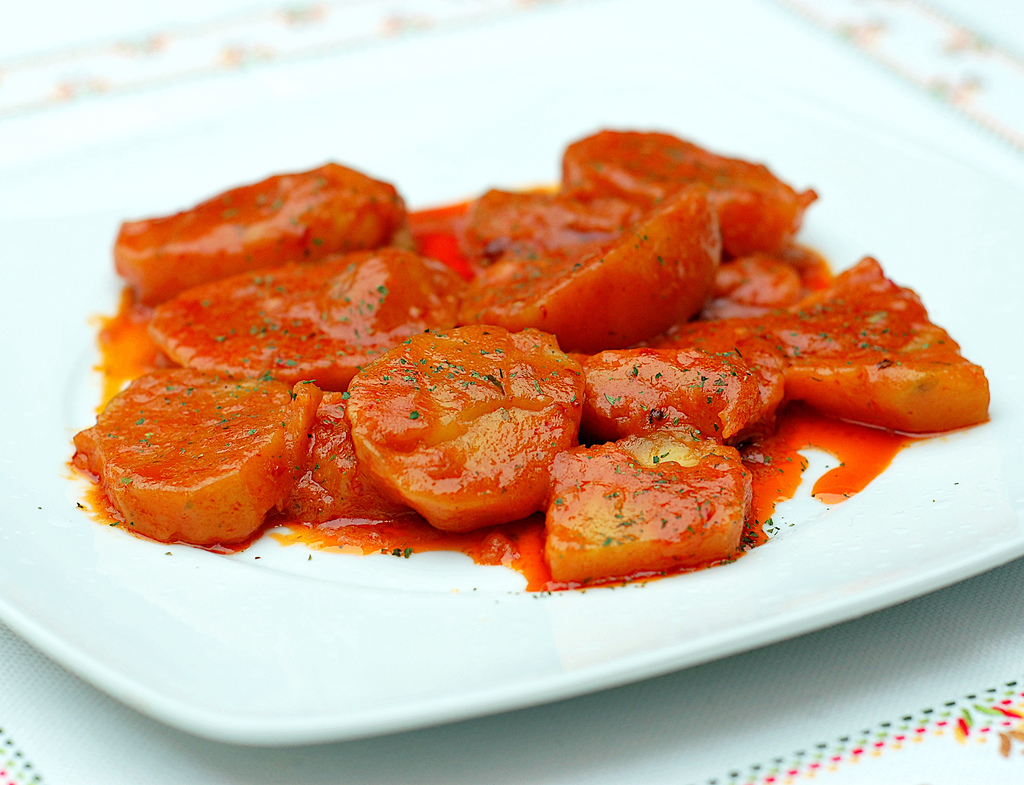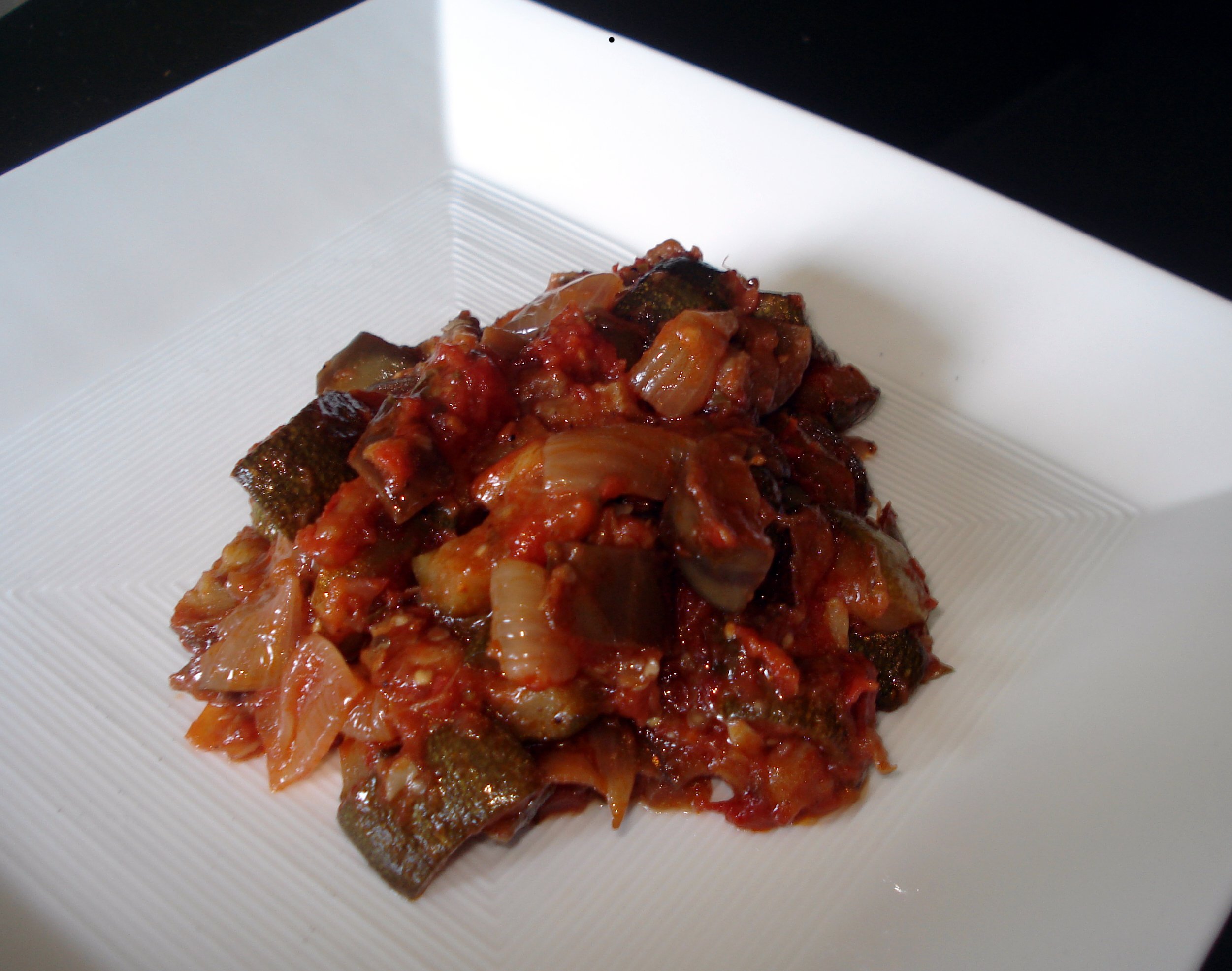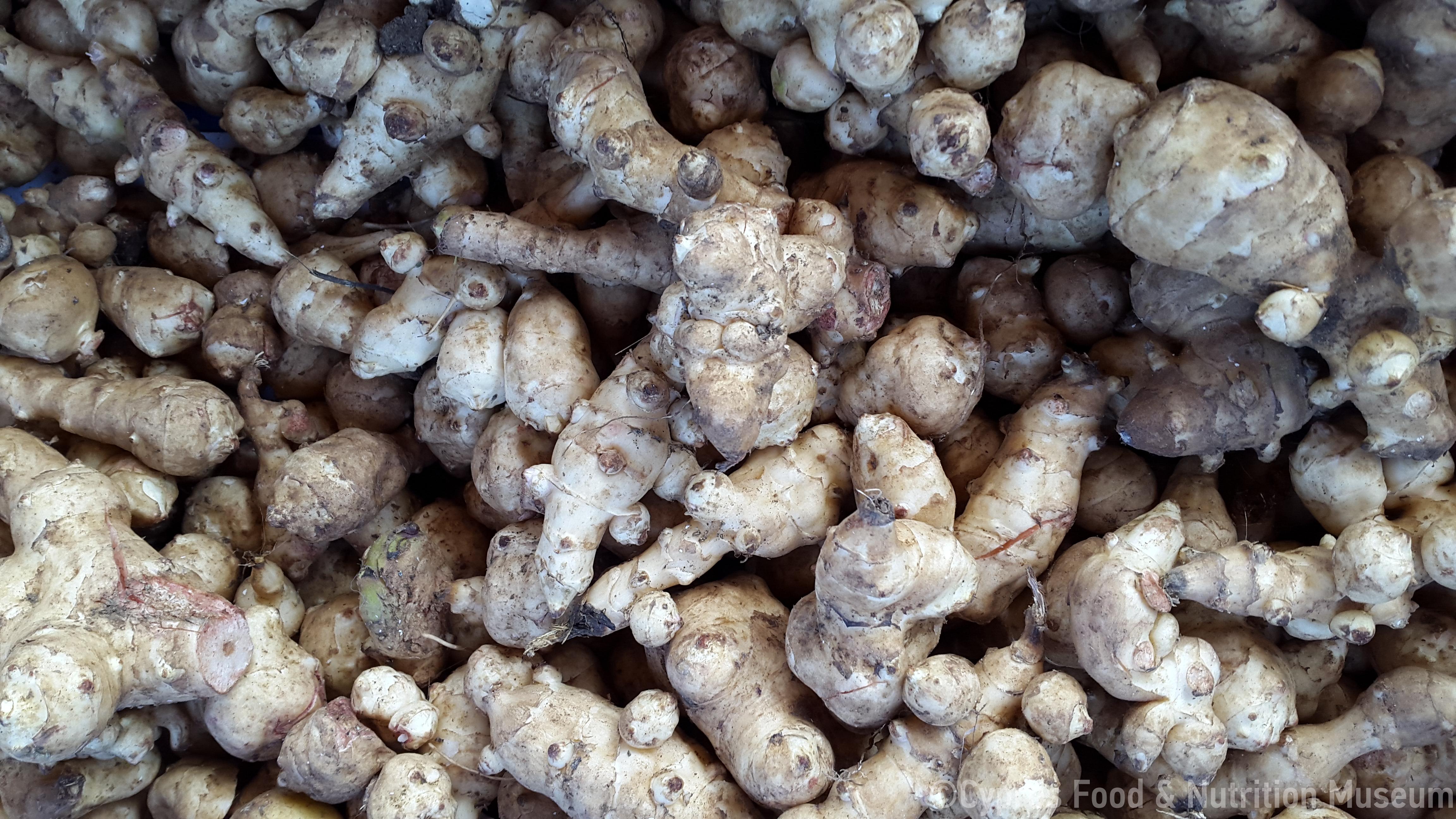Baby potatoes fried whole (skin on) with wine and dry coriander.
Name - Origin
Baby potatoes, fried whole in olive oil and cooked in wine.
These potatoes are called 'antinahtes' due to the way they are cooked. During cooking, we often shake the pot to prevent the potatoes from sticking and also in order for the ingredients to mix well. They are also called 'spastes' because we crush each one with a stone before cooking them (Petasis 1992, 256).
Women would choose small potatoes and wash them well. They would not cut them, instead they would hit them with a stone to 'break' them (to crush them silightly). Then, tehy would fry them in hot oil and when they were half cooked, they would add wine, alarmi (brine) and crushed dry coriander and cook them over low heat. The potatoes would become like loukoumades. As mentioned before, they would not use a ladle to stir the potatoes, instead, they would often shake the pot (Petasis 1992, 256).
According to oral testimony, their preparation is as follows: We take fresh potatoes and wipe them without removing the skin. We add red wine, a bit of water, sprinkle them with crushed dry coriander seeds, season with salt and pepper and let them simmer. When the liquids evaporate and they are left with their oil, they are ready (Kyriakos Panteli, Sotira Ammochostou, age 71).
George Mavrokordatos gives the following description for the preparation of this particular dish: "Once you find small potatoes, you clean them, crush them, put them in a pot and shake them often until they are cooked. Then, you add salt, coriander, sterkon wine, shake themand cover the pot'' (Mavrokordatos 2003, 306).
Additional information and bibliography
According to an oral testimony from Sotira Ammochostou, only fresh, small, round potatoes were used in this dish (Kyriakos Panteli, Sotira Ammochostou, age 71).
Yangoullis K. G. (2009), Θησαυρός Κυπριακής Διαλέκτου. Ερμηνευτικό, Ετυμολογικό, Φρασεολογικό και Ονοματολογικό Λεξικό της Μεσαιωνικής και Νεότερης Κυπριακής Διαλέκτου, Βιβλιοθήκη Κυπρίων Λαϊκών Ποιητών, 70, Theopress Publications, Nicosia.
Mavrokordatos G. I. (2003), Δίκωμο: Το χθες και το σήμερα, Nicosia.
Petasis G. (1992), Η κωμόπολη της Κυθρέας: ιστορική, αρχαιολογική, πολιτιστική και λαογραφική επισκόπηση, Stelios Livadiotis Ltd, Nicosia.
Oral testimony: Kyriakos Panteli, 71 years old (d.o.b. 20/02/1943), Sotira Ammochostou.
Demetra Demetriou , Savvas Polyviou,, Argyro Xenophontos
